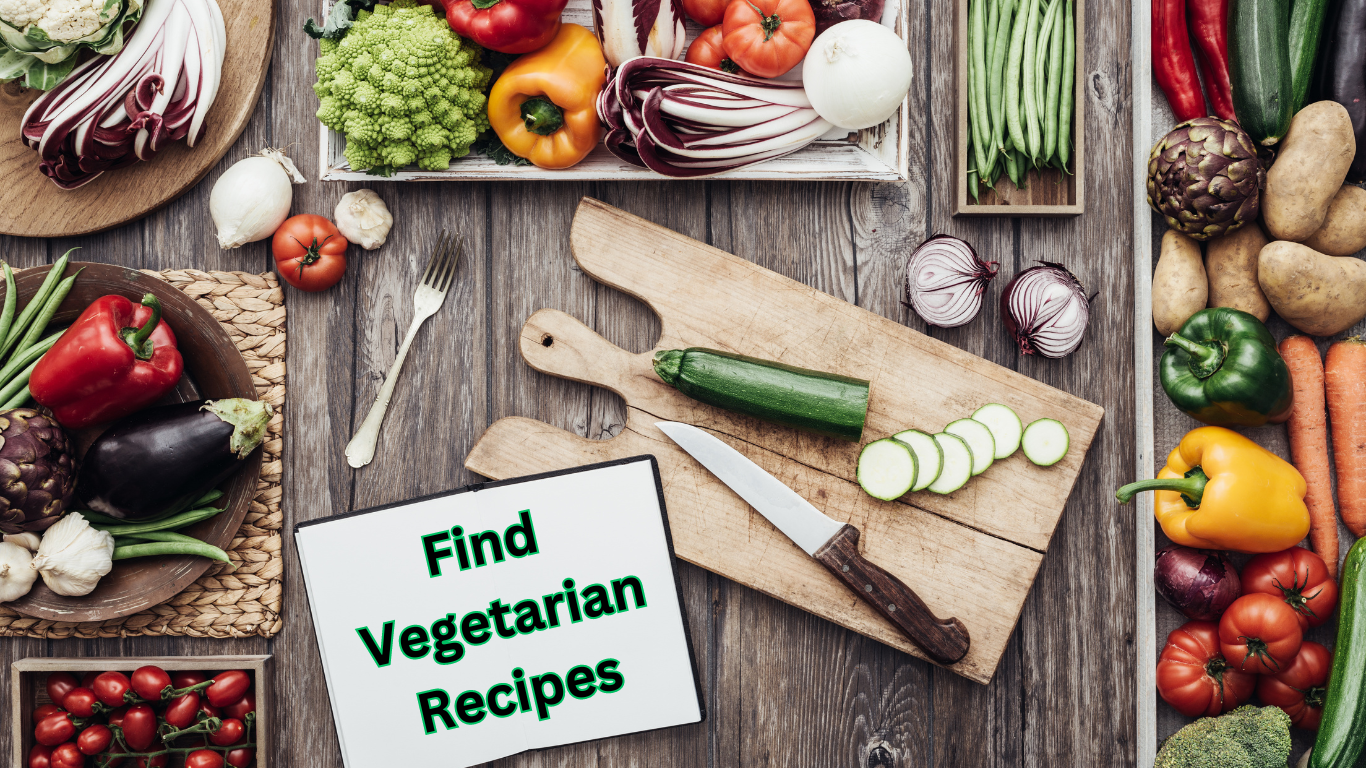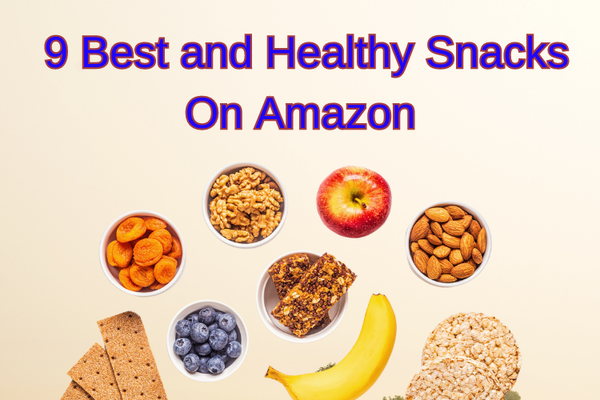Discover a World of Flavor: Find Vegetarian Recipes for Every Occasion
Are you struggling to find creative and delicious vegetarian recipes for every occasion? With our extensive library of vegetarian recipes, we've got you covered.

Are you struggling to find creative and delicious vegetarian recipes for every occasion? You're not alone. Millions of vegetarians often search for fresh culinary ideas that can spice up their meals without compromising on their dietary preferences. But it doesn't have to be this hard. With our extensive library of vegetarian recipes, each meal is an opportunity to discover a new favorite dish. From easy weekday dinners to festive holiday feasts, we've got you covered.
Introduction to Vegetarianism and its Benefits
Dietary choices in the world are diverse. Vegetarianism is embraced globally. Vegetarianism refers to the practice of abstaining from consuming meat, fish, and poultry.
This decision often stems from ethical concerns. These concerns include animal welfare, health, and environmental sustainability. Individuals who adopt a vegetarian diet actively reshape their relationship with food. They also align their values with dietary choices that promote a compassionate and sustainable future.
Brief Overview of Vegetarianism as a Lifestyle Choice
Vegetarianism has a long history dating back to ancient civilizations. Ancient Greece and India practiced it due to philosophical beliefs. Philosophical schools advocated for non-violence towards animals. Today, individuals have created various dietary choices for personal preferences. These choices cater to different beliefs and individual tastes. These variations have evolved over time. Lacto-ovo vegetarianism is perhaps the most common form of vegetarianism.
Followers of this diet exclude meat, fish, and poultry from their meals but still consume dairy products (lacto) and eggs (ovo). This type of vegetarianism provides flexibility while ensuring adequate nutrient intake.
Veganism avoids animal-derived products like dairy, eggs, honey, gelatin, leather, and silk. Vegans adopt this lifestyle for ethical reasons. It's related to animal rights and environmental concerns.
Health Benefits of a Vegetarian Diet
There are numerous health benefits associated with following a vegetarian diet. These benefits go beyond just ethical considerations. Research consistently shows that vegetarians have lower risks of chronic diseases. This is compared to omnivorous people. A well-planned vegetarian diet can provide all the necessary nutrients for optimal health.
Vegetarians reduce their risks of heart disease by eating plant-based foods. These foods are rich in fiber, vitamins, minerals, and antioxidants. They also lower risks of high blood pressure, type 2 diabetes, and certain types of cancer. Moreover, plant-based diets have less saturated fats and cholesterol. In addition, they include key nutrients like folate and vitamin C. These nutrients improve weight management and overall well-being.
Environmental Advantages of Plant-based Eating
The environmental impact of dietary choices cannot be overlooked. Modern livestock production contributes significantly to greenhouse gas emissions, deforestation, water pollution, and depletion of natural resources. Individuals can actively reduce their carbon footprint by adopting a plant-based diet. They can also promote a more sustainable future by incorporating more vegetarian meals into their routine.
Research has shown that producing meat requires more land, water, and energy than growing plant-based foods. Individuals can alleviate strain on the planet by choosing vegetarianism or reducing meat consumption. This also helps mitigate adverse effects linked to industrial livestock farming.
Furthermore, embracing vegetarianism allows for biodiversity conservation as it reduces habitat destruction caused by expanding agricultural lands for animal feed production. It also promotes sustainable land use practices that can help combat deforestation and protect fragile ecosystems.
Types of Vegetarian Diets
Lacto-ovo vegetarianism: excluding meat, fish, and poultry but including dairy products and eggs
Lacto-ovo vegetarianism is a common form of vegetarian diets. Many individuals choose to forgo meat, fish, and poultry. They still eat dairy products and eggs in their meals. This diet includes many different foods and ensures you get enough nutrients. Lacto-ovo vegetarians contribute to animal welfare by eliminating animal flesh. They also reduce their risk of certain health conditions associated with high meat consumption.
Dairy products serve as an important source of calcium, vitamin D, and protein for lacto-ovo vegetarians. Milk, cheese, yogurt, and butter can be included in various dishes or consumed independently to meet the nutritional needs.
Eggs are an excellent source of protein and contain essential vitamins such as B12. They provide versatility for cooking and baking: fluffy omelets, hearty frittatas, egg-based desserts. Think custards, meringues.
Veganism: Avoiding All Animal Products, Including Dairy, Eggs, and Honey
Veganism represents a more stringent form of vegetarianism that excludes all animal-derived ingredients from the diet. Vegans avoid meat and dairy, including milk, cheese, and eggs. This lifestyle choice is often motivated by ethical concerns related to animal exploitation as well as environmental sustainability.
Following a vegan diet means no animal proteins, such as meat. People on this diet need other ways to get enough protein. Plant-based protein sources become crucial in a vegan diet regime.
Legumes like lentils or chickpeas are great for protein requirements. Whole grains such as quinoa and brown rice are also good choices. Nuts and seeds, like almonds or chia seeds, are beneficial too. Soy products like tofu or tempeh can fulfill protein needs. Vegans should pay attention to vitamins. They need B12 from fortified foods or supplements.
Pescetarianism: Abstaining From Meat But Still Consuming Fish and Seafood
Pescetarianism is a unique dietary approach. Individuals exclude meat, but they still eat fish and seafood. This choice is flexible and includes a varied menu. It also offers health benefits associated with vegetarianism.
Fish and seafood are great for heart health and brain function. They are excellent sources of omega-3 fatty acids. These acids also reduce inflammation in the body. Pescetarians include fish in their diet. This provides them with high-quality proteins. They also get essential nutrients like vitamin D and iodine.
Fatty fish like salmon, tuna, or mackerel are particularly rich in omega-3 fatty acids. Pescetarians should select sustainable sources of responsibly caught fish. This choice minimizes the impact on the environment.
Vegetarian diets offer a range of options that can align with different personal beliefs or dietary preferences. One can choose lacto-ovo vegetarianism with dairy and eggs. One can also embrace veganism with no animal products. Both approaches offer food variety and promote compassion and sustainability.
Pescetarianism offers flexibility. Seafood is included as an protein alternative. It avoids traditional meats. In the end, assessing personal nutritional needs is vital. This helps guarantee a balanced intake of necessary nutrients for maximum health.
Essential Nutrients for Vegetarians
Protein Sources for Vegetarians
One common concern regarding vegetarian diets is obtaining an adequate amount of protein. However, there is a wide array of plant-based protein sources that can provide all the essential amino acids required by the body. Legumes, such as lentils, chickpeas, and black beans, are not only rich in protein but also offer substantial amounts of fiber and minerals.
Tofu is made from soybeans and has a mild flavor. It can be added to different dishes and absorb flavors. There are other options available: tempeh, made from fermented soybeans, has a nutty taste and firm texture. Seitan, derived from wheat gluten, has a meaty texture perfect for savory dishes. Quinoa, a complete protein grain, provides all nine essential amino acids.
Detailed Breakdown of Amino Acids in Plant-Based Proteins
When you are on a vegetarian diet, it's crucial to know the amino acid profiles of plant-based proteins for proper nutrition. Amino acids are essential for protein formation. They contribute to enzyme production and tissue repair in the body.
Animal proteins are complete proteins because they contain all essential amino acids. In contrast, plant-based proteins may lack or have limited amino acids. However, combining different plant-based protein sources with complementary amino acid profiles can create complete proteins.
Legumes, such as beans and lentils, are often combined with grains like rice or couscous. This combination of foods creates complementary protein combinations. These combinations make up for any essential amino acids lacking in each food item alone. Vegetarians can easily meet their recommended amino acid intake by incorporating diverse sources throughout the day. For example, they can have beans with rice at lunch or hummus on whole-grain bread at snack time.
Iron-Rich Foods for Vegetarians
Iron is a necessary mineral. The body needs it to make hemoglobin. Hemoglobin carries oxygen in red blood cells. Meat is often thought to have lots of iron. However, vegetarians can also get plenty of iron from plants.
Spinach and kale are leafy greens packed with non-heme iron. The body easily absorbs iron when combined with vitamin C. Lentils, fortified cereals, and pumpkin seeds are also rich in iron.
It's worth noting that heme iron, found only in animal products, has higher bioavailability than non-heme iron. However, incorporating vitamin C-rich fruits or vegetables like oranges or bell peppers in meals can enhance non-heme iron absorption significantly.
Calcium Alternatives for Those Avoiding Dairy Products
Dairy products are commonly associated with calcium intake. Individuals who follow a vegetarian diet but avoid dairy can still get enough calcium. They can find it in different plant-based sources.
Dark leafy greens like kale and broccoli are rich in calcium. They also have other beneficial nutrients. Additionally, almonds are an excellent source of calcium while providing healthy fats and protein.
There are plant-based milk alternatives fortified with calcium and vitamins. These options are for those seeking alternative milk with essential nutrients. Some options include vitamin D and B12 traditionally found in dairy milk. Some studies suggest dairy products have higher bioavailability of calcium. This is compared to certain plant-based sources because factors like oxalates or phytates are present in plants and hinder absorption. Overall, the bioavailability is enough if you follow a balanced vegetarian diet. It should include different calcium-rich foods all day.

Vegetarian Recipe Categories
Breakfast Recipes:
Start your day off right with these delicious and nutritious vegetarian breakfast options. Whether you prefer a savory or sweet start, there are plenty of options to satisfy your taste buds.
Savory Tofu Scramble with Vegetables:
For those looking for a protein-packed breakfast, a savory tofu scramble is the perfect choice. This recipe combines crumbled tofu with a medley of fresh vegetables like bell peppers, onions, and spinach.
This scramble is seasoned with turmeric, cumin, and nutritional yeast. These spices add a cheesy flavor. It is not only delicious but also a great source of plant-based protein. Serve it alongside whole grain toast or wrap it in a tortilla for a hearty and satisfying morning meal.
Fluffy Vegan Pancakes with Fruit Compote:
Indulge in the ultimate breakfast treat with these light and fluffy vegan pancakes topped with a delightful fruit compote. Made without eggs or dairy, these pancakes are incredibly light yet still rich in flavor. To create the perfect pancake batter, combine flour and baking powder. Use plant-based milk, like almond or oat milk, and add a touch of vanilla extract.
Cook them to perfection on a non-stick pan until golden brown. Serve them stacked high and top them off with your favorite fruit compote or syrup for an extra burst of sweetness.
Key Takeaways
- Embracing vegetarianism opens up a world of culinary creativity and nourishment. Vegetarian cooking provides numerous tasty dishes using various plant-based ingredients. The possibilities for delicious meals are endless with a wide array of recipes.
- Vegetarian breakfasts offer healthy ways to start your day. You can either enjoy a savory tofu scramble or fluffy vegan pancakes. And for lunch, there are countless recipes to explore that will keep you fueled and satisfied until dinner.
- By incorporating more vegetarian meals into your diet, not only are you making a positive impact on your health but also on the environment. Plant-based diets reduce greenhouse gas emissions and water usage more than animal-based diets.
- Therefore, every vegetarian meal you enjoy contributes to the well-being of our planet. So why not embark on this exciting culinary journey?
- Try new ingredients. Experiment with flavors. Enjoy the benefits of embracing a vegetarian lifestyle. Your taste buds will thank you, and the world will too!
Thank You For Reading Our Content, and Please Subscribe to Get More Fresh Articles Right to Your Inbox 😄




